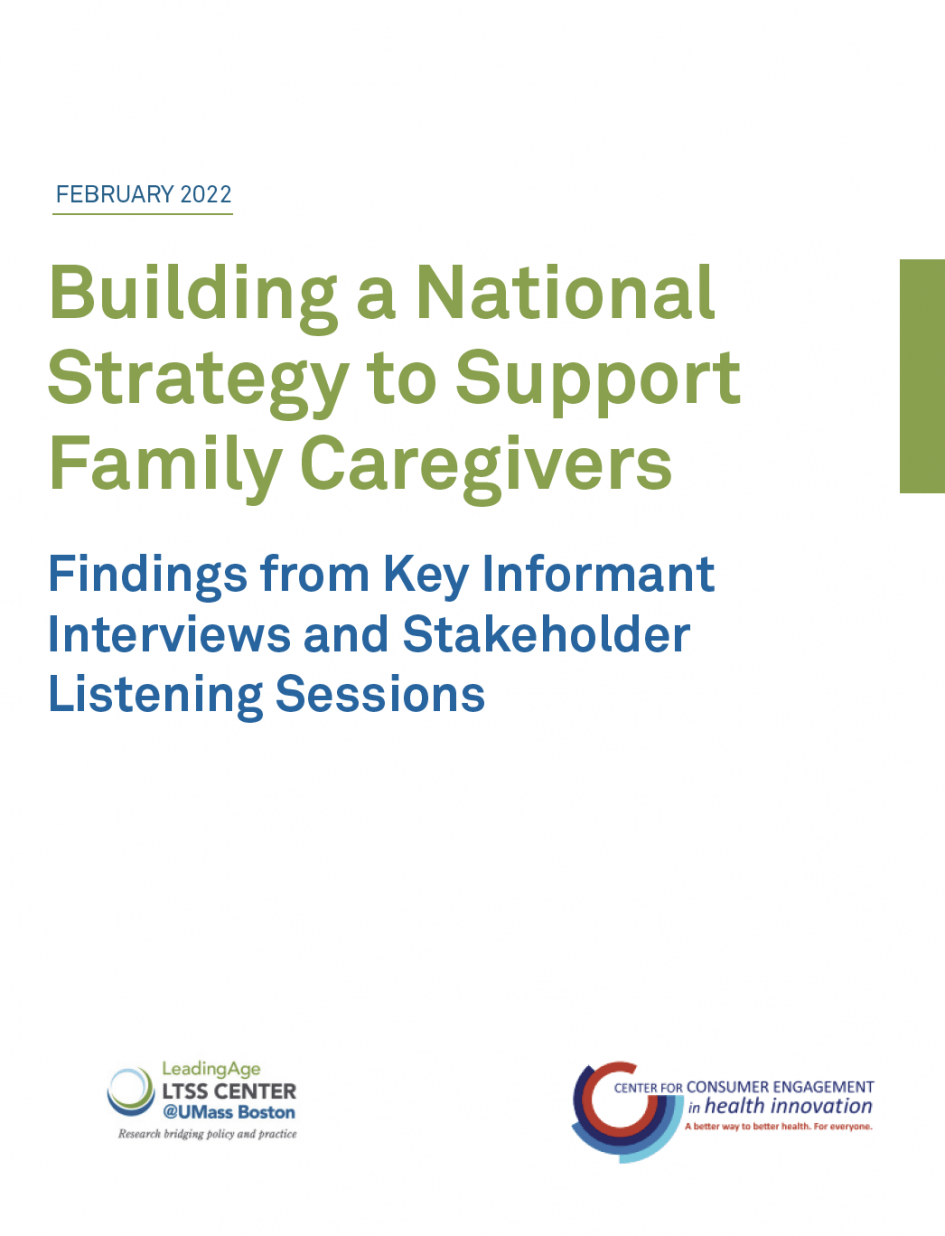Family caregivers are a critical link in the network of providing long term services and supports (LTSS). Yet their needs are often overlooked. By collecting concerns, suggestions, and priorities from a diverse range of stakeholders working with family caregivers, a new report from the Leading Age LTSS Center @UMass Boston and Community Catalyst’s Center for Consumer Engagement in Health Innovation presents a strategic roadmap for better support.
Nationally, momentum to better support family caregivers got a boost in 2018 when Congress authorized the Recognize, Assist, Include, Support, & Engage (RAISE) Family Caregivers Act. The RAISE Act created the Family Caregiving Advisory Council, which identified five primary recommendations to serve as the backbone of a national strategy to improve the physical, emotional, and financial well-being of family caregivers.
“Building a National Strategy to Support Family Caregivers: Findings from Key Informant Interviews and Stakeholder Listening Sessions” summarizes insights from a year’s worth of strategy sessions and interviews with representatives of more than 100 organizations. “Our research sought to bring more voices into the RAISE Council’s conversation,” says co-author Eileen J. Tell, MPH, principal and CEO of ET Consulting LLC and a fellow of the UMass Boston Gerontology Institute. “The rich findings illustrate the importance of connecting with a diverse array of stakeholders.”
The new report presents specific actions across a variety of players for meeting those five larger goals. “This report is really an action plan developed with very broad input from the widest possible audience,” says Marc Cohen, PhD, co-director of the Leading Age LTSS Center @UMass Boston and one of the report’s authors. Thoughts on best practices and the most critical action steps were collected from national and state organizations, county health providers, the direct care workforce, large and small employers, aging and disability organizations, faith-based groups, respite care providers, and more.
“Supporting the 53 million family caregivers who provide vital support to older adults and people with disabilities every day in this country requires an all-hands-on-deck approach,” says Rani Snyder, vice president, program at The John A. Hartford Foundation. “This research is valuable because it captures the perspectives of an array of stakeholder organizations working with family caregivers in the private and public sectors, which along with the perspectives of caregivers themselves will guide our nation to a new national caregiving strategy.”
Download “Building a National Strategy to Support Family Caregivers”
The research was made possible by the support of the RAISE Family Caregiver Resource and Dissemination Center at the National Academy for State Health Policy in collaboration with the U.S. Administration for Community Living, with generous funding from The John A. Hartford Foundation.


1 Pingback